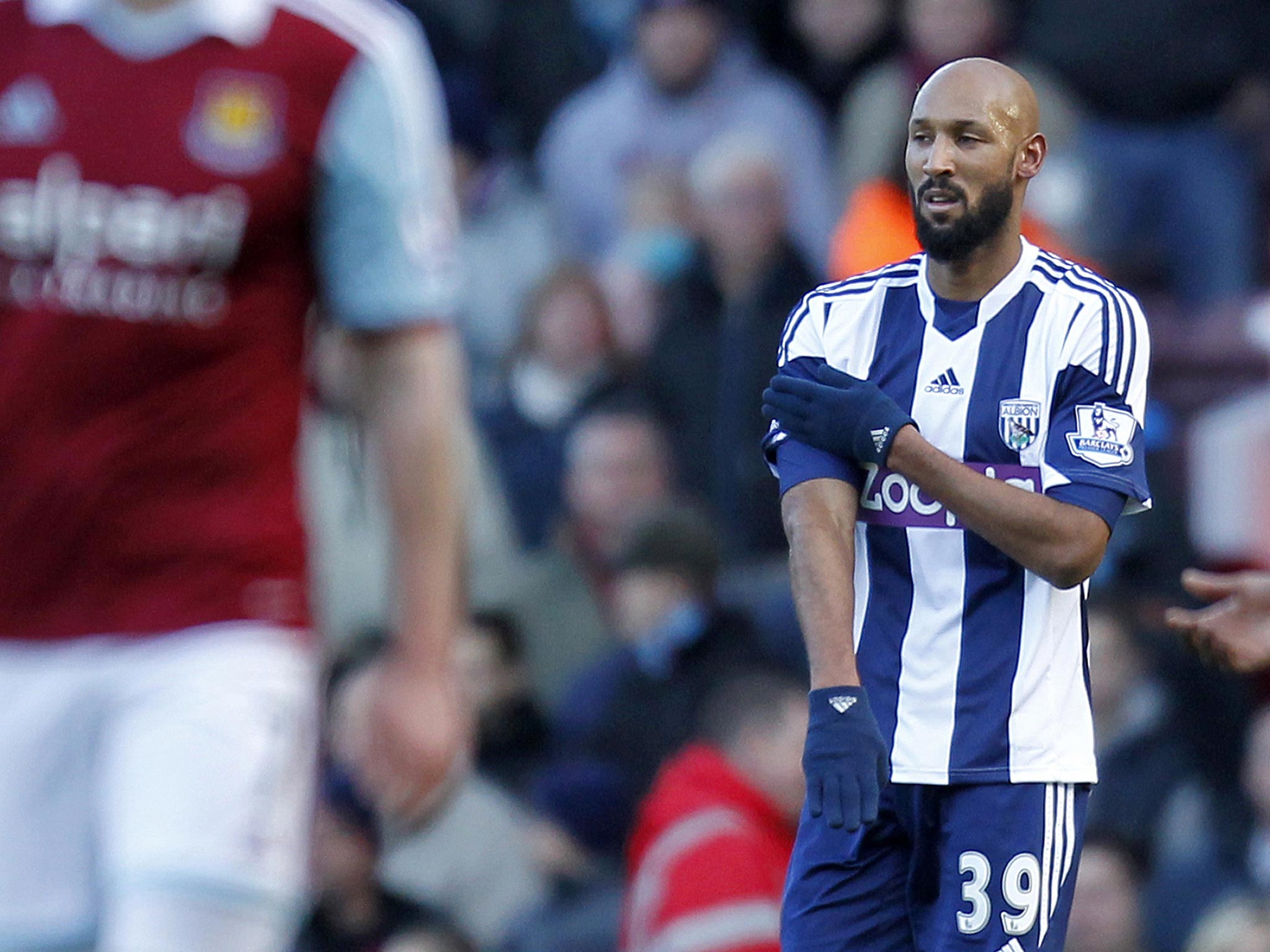Sam Wallace on Nicolas Anelka's 'quenelle' gesture: Getting any ban was tough work in complex case for the FA
No one in France has ever been convicted for having made the gesture

Nicolas Anelka is unlikely to see it this way but a five-match ban and an £80,000 fine for a gesture with undeniable anti-Semitic connotations is nowhere near as severe as it could have been. You have to hope that he has the good sense not to appeal.
There was outrage in some quarters at the Football Association that there was not a steeper ban for Anelka for the "quenelle", nominally in support of his friend the French comedian Dieudonné M'bala M'bala. This is the Dieudonné who invented the gesture and who has been convicted seven times of anti-Semitism in France and is banned from coming to the UK by the Home Office.
How can Luis Suarez get an eight-game ban for racially abusing Patrice Evra, and Anelka only five for the "quenelle"?
The first thing to say is that it is not the FA which decides the length of the ban. That was determined by the commission and its chairman, the QC Christopher Quinlan. The FA is the prosecution in this case, as it is in all disciplinary matters, and it is down to the FA's counsel to make the charges stick.
In the end it was the independent regulatory commission which accepted that Anelka was not, in its words "an anti-Semite or that he intended to express or promote anti-Semitism by his use of the 'quenelle'." In short, it accepted that he did not recognise the full offence of the gesture – and in doing so ensured that his punishment would be that much less severe.
That is the part of the process that is hardest to understand, especially given that Anelka can have hardly failed to have understood the controversy that Dieudonné had brought upon himself in France around the time the player made the gesture at West Ham, on 28 December. Indeed, he later said he did it in support of a man who at that time was having his shows closed down by the French government.
Yet in spite of the evidence that demonstrated fairly clearly the offensive nature of the gesture, there were many obstacles to a successful conviction. There was a great deal of concern at the FA about whether it could even secure a guilty verdict for Anelka, an outcome it judged as crucial.
Although there are reprehensible associations made between the "quenelle" and anti-Semitism, no one in France has ever been convicted for making the gesture. Equally, a prominent member of the Jewish community in France played down its significance in the aftermath of Anelka performing it. Although the same individual later backtracked, his words were seized on by Anelka in his only public statement on the matter.
None of this was likely to help the FA's cause when it spent three days in front of Quinlan and his commission at the Grove Hotel in Hertfordshire. Yet the organisation got the guilty verdict it had hoped for. West Bromwich Albion have suspended Anelka pending the decision over the appeal, although they can hardly be said to have led from the front on this issue.
If you wanted the most telling verdict on the decision, it came from prominent Jewish groups in the UK, some of which had been consulted by the FA over the process. Each one, from the Board of Deputies of British Jews, to the Community Security Trust, Jewish Leadership Council and Maccabi GB said variously that the verdict delivered a "strong message" and was a "welcome outcome".
For the FA, plunging into difficult territory encompassing modern French political and cultural sensibilities, on an issue that not even the French government had ever legislated, this was a fiendishly difficult case. It was not a ban to beat all others in length, but it was at least a ban and a message that this insidious gesture will not be tolerated. Which, given the case's complexities, the FA regards as a victory.
Join our commenting forum
Join thought-provoking conversations, follow other Independent readers and see their replies
Comments
Bookmark popover
Removed from bookmarks